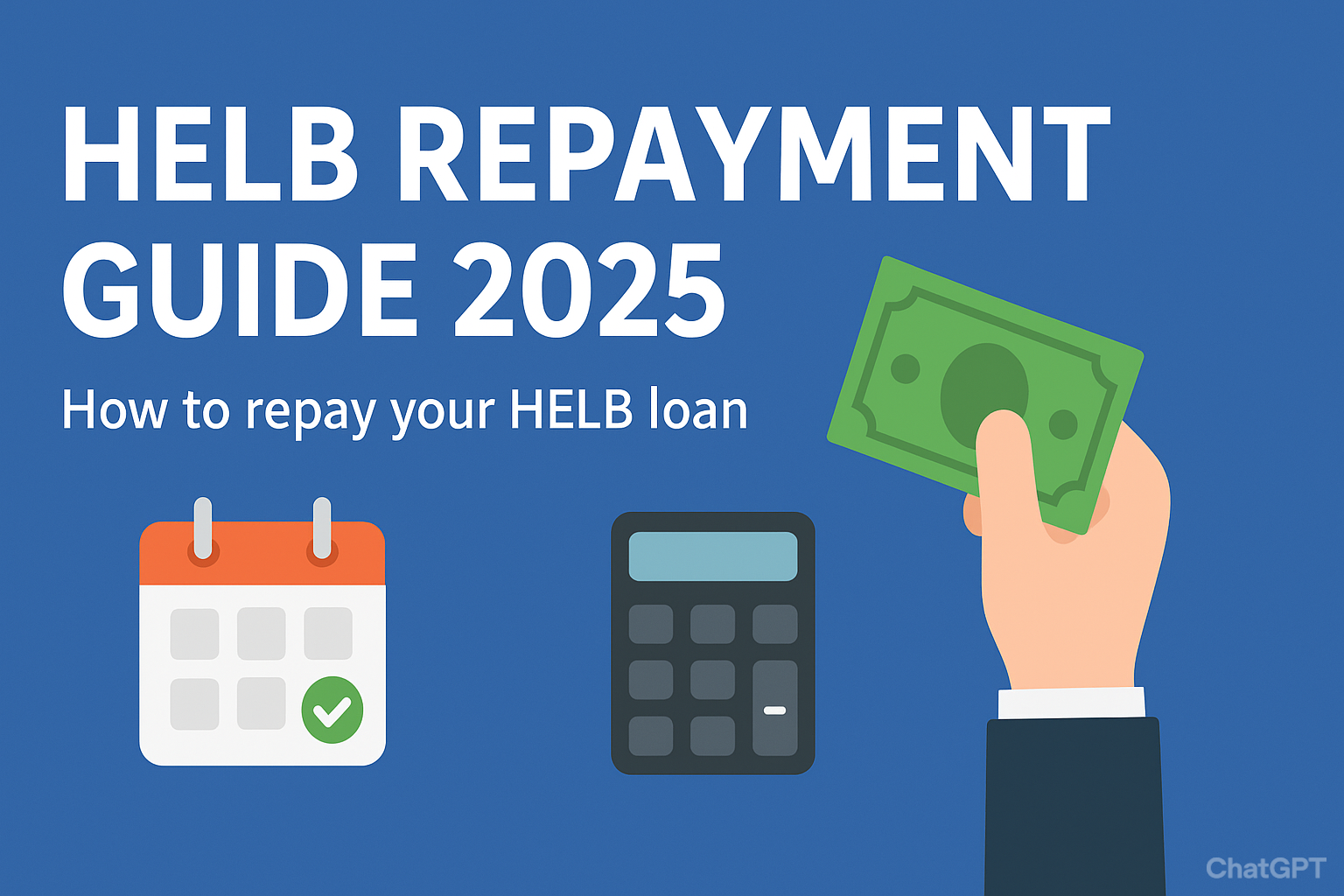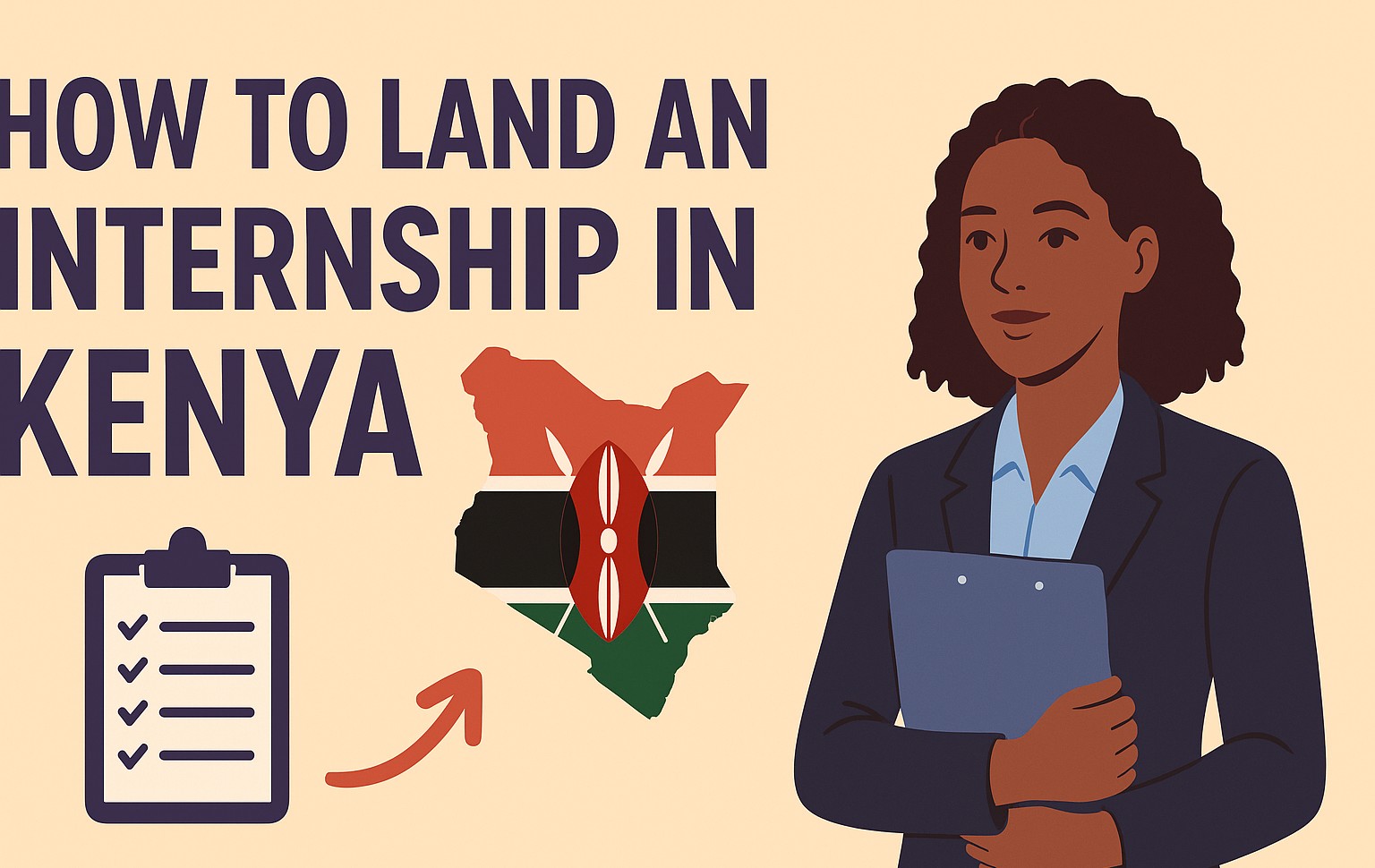

Titus Morebu
Author
Recommended HELB Repayment Guide 2025: What Graduates Need to Know
A complete guide to HELB repayment in 2025—when you start, how to pay, penalties, check-off vs self-repayment & tips to save money.
Introduction
Taking a HELB (Higher Education Loans Board) loan is a major step toward advancing your education—but understanding how repayment works is just as crucial. This guide, updated for 2025, walks you through everything you need to know to repay your HELB loan confidently, avoid penalties, and manage your debt with smart strategy. 😊
Table of Contents
- When Repayment Begins
- Repayment Methods
- Interest & Fees
- Penalties for Default
- Employer Check-Off System vs Self-Repayment
- Repayment from Abroad (Diaspora)
- Clearing the Loan Early & Certificates
- Tips to Make Repayment Easier & Save Money
1. When Repayment Begins
After you finish your studies, you do not start paying back HELB immediately unless you're already earning. There is a 12-month grace period following graduation, during which you should prepare but you are not legally required to begin repayments. If you secure formal employment before the grace period ends, you may need to begin earlier. Updates to HELB terms stipulate that repayment might also start earlier in certain employment cases.
2. Repayment Methods
HELB offers several channels through which you can repay your loan depending on your employment status and location:
- Employer Check-Off System: If you are formally employed, your employer Deducts a specified amount each month from your salary and remits it directly to HELB. It is often the simplest path for salaried graduates.
- Self-Repayment: For those who are self-employed, freelancing, or informal sector workers, or those not yet working, you can repay via mobile money (M-Pesa), bank transfers, through the e-Citizen repayment gateway, or other digital/online methods. Always get or generate an official invoice/receipt.
- Repayment via USSD & Mobile App: HELB supports using USSD (dial *642#) or mobile app/portal tools to check balances, generate invoices, and sometimes initiate payments.
- From Abroad: If you live outside Kenya, there are specific bank accounts and remittance/diaspora platforms to send payments. Make sure you reference your National ID / HELB loanee number so your payments are properly credited.
3. Interest & Fees
Understanding how much you will actually end up paying beyond the principal is very important. Key points in 2025 include:
- Interest Rate: HELB loans (for undergraduates/TVET) carry around 4% per annum on reducing balance. This means interest is charged on the remaining principal, not on the full original amount once payments begin.
- Administrative / service fees: There may be fees associated with issuing certificates, generating invoices, or bank charges depending on which payment channel you use. Always check the current HELB or government notices.
- Grace period: No interest-free period after graduation, but the first 12 months are grace, meaning no legal requirement to repay unless you're employed. Interest may start accruing depending on your specific HELB loan product terms.
4. Penalties for Default
Failing to make payments on time has real consequences. Some of the things you need to watch out for:
- Monthly Penalties: If you miss repayments after the grace period or fail to comply with the schedule, you are liable to monthly penalties. In recent HELB policy, there are fines of at least **KES 5,000** per month for non-payment under certain conditions.
- Credit Reference Bureau (CRB) Listing: Defaulting may lead to a negative listing at CRBs, which affects your ability to get other loans, apply for credit cards, or even some job or contract opportunities.
- Legal Actions: While imprisonment is often feared, HELB generally uses administrative and civil measures to recover loans rather than arrest. However, continuing not to pay and not communicating may lead to court orders to recover the debt.
5. Employer Check-Off vs Self-Repayment
| Feature | Employer Check-Off | Self-Repayment |
|---|---|---|
| Automatic deductions | Yes (salary) | No, you initiate |
| Risk of forgetting | Low | Higher unless disciplined |
| Proof of payment | Payslips + employer remittance | Receipts/invoices you keep |
| Suitable for | Formally employed graduates | Self-employed, gig workers, unemployed |
6. Repayment from Abroad (Diaspora)
If you're abroad, these are things to know:
- Use trusted remittance platforms or official bank transfer channels designated by HELB.
- Always include your National ID, loanee reference number or invoice number in your payment details so HELB can match the payment correctly.
- After payment, retain proof (bank confirmation, remittance docs) and send it to HELB via email or through their portal if required, particularly if the amount hasn't shown in your HELB account.
7. Clearing the Loan Early & Certificates
Paying off your HELB loan before the full term can bring real benefits:
- Early Clearance: Once your outstanding balance (principal + accrued interest + penalties) is paid in full, you can apply for the HELB Clearance Certificate. This is often required for employment, visa processes, or further studies.
- Compliance Certificate: If you are still repaying or within grace, you can request a compliance certificate showing you are meeting your obligations—or still within grace.
- Savings: Early repayment reduces total interest paid and stops penalties from accumulating. If you have extra income (bonus, side hustle), paying more can shorten your repayment period significantly.
8. Tips & Strategies to Make Repayment Easier
Here are smart ways to manage and reduce your repayment burden in 2025:
- Create a Budget that Includes HELB: As soon as you graduate or begin working, factor HELB repayment into your monthly expenses so you’re not caught off guard.
- Set Up Reminders: Use phone alerts, calendar apps or budgeting tools to remind you each month to make payment if you're self-repaying.
- Pay More Than the Minimum: Even a little extra each month helps reduce principal faster, lowering interest costs and reducing penalties.
- Take Advantage of Waivers or Penalty Amnesty: HELB sometimes offers waivers on penalties or special campaigns. Watch for announcements from HELB via their official website or social media. If you’re a defaulter, a lump-sum payment during a waiver period can significantly reduce your total payable.
- Stay in Contact with HELB: If your situation changes—loss of job, income drop, etc.—communicate early to see if there are restructuring options or payment plan adjustments. Silence tends to worsen penalties.
- Verify Payments & Maintain Proof: Always save SMS confirmations, bank slips, invoices. If an employer is deducting, check your payslips to ensure the deductions happen and are remitted.
Conclusion
Repaying HELB in 2025 is manageable if you know the rules and use the tools at your disposal. Whether you’re salaried, self-employed, or abroad, staying organized, starting on time, and using official channels will save you stress and cost. Your repayment also impacts the sustainability of higher education funding in Kenya—so being disciplined isn’t just good for your future, it’s good for others too. 💪
Useful External Resources
For the most accurate, official details, always refer to:
Gallery

Related Articles
3 articles
How to Apply for a Canadian Student Visa from Kenya in 2025 🍁
Learn the complete, up-to-date process, requirements and tips for Kenyans applying for a Canadian study permit in 2025. Stay ahead with changes and best practices.

Best Free Learning Apps for Kenyan Students in 2025
Discover powerful free learning apps for Kenyan students — from curriculum-aligned platforms to global resources that work offline and on low-data connections.

How to Land an Internship in Kenya: A Step-by-Step Guide to Success 🚀
Discover the most effective strategies to secure internships in Kenya—eligibility, applications, channels, preparation, visa tips—and stand out in 2025.